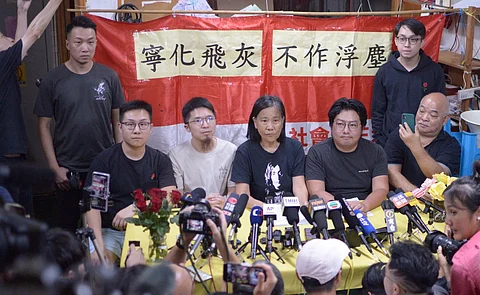

The League of Social Democrats (LSD), Hong Kong’s last active pro-democracy party, announced its disbandment on Sunday, citing “immense political pressure” from ongoing national security measures.
Founded in 2006, the small left-wing group was known for its bold street protests and advocacy for universal suffrage.
Its closure marks the end of organized pro-democracy opposition in the city, as stringent laws have silenced dissent and led to the dissolution of numerous civil society groups.
The LSD’s decision follows years of challenges, including internal disputes and the imprisonment of much of its leadership.
“Over these 19 years, we have endured hardships of internal disputes and the near-total imprisonment of our leadership, while witnessing the erosion of civil society, the fading of grassroots voices, the omnipresence of red lines, and the draconian suppression of dissent,” the party stated.
The group highlighted the increasingly treacherous political landscape, noting that “the road has narrowed beyond passage.”
China’s 2020 national security law, introduced after the 2019 pro-democracy protests, punishes offenses like subversion with potential life imprisonment.
In 2024, the city’s pro-Beijing legislature passed Article 23, targeting crimes such as treason and sedition.
These laws have led to the prosecution or jailing of activists, the closure of critical media outlets, and the disbandment of groups like the Democratic Party, which signaled its potential dissolution earlier this year.
The LSD, despite its smaller size, was the last to maintain occasional street protests, often using provocative tactics like throwing objects at officials to draw attention to its causes.
The LSD’s disbandment comes just before the 28th anniversary of Hong Kong’s return to Chinese rule, a time when pro-democracy protests were once a hallmark of the city’s political scene.
Party leader Chan Po-ying expressed pride in the group’s contributions, stating, “We have stayed true to our original aspirations and haven’t let down the trust placed in us by those who went to prison.”
However, with no viable path forward, the party concluded it had “no other choice” but to dissolve.
Beijing and Hong Kong authorities maintain that these security measures ensure stability while safeguarding residents’ rights, though critics argue they reflect a significant erosion of the city’s promised freedoms post-1997 handover.